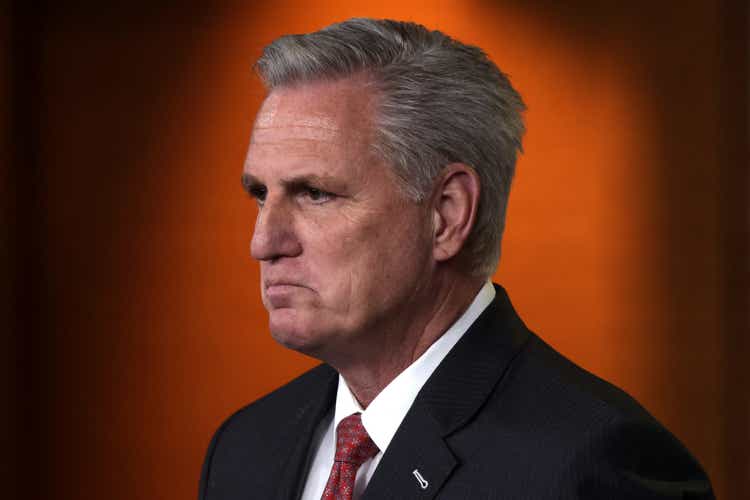Alex Wong/Getty Images News
Following 11 ballots that came up short, the U.S. House entered a fourth day of the new Congress on Friday without a speaker. A protracted stalemate over the candidacy of Kevin McCarthy has left the chamber paralyzed and there doesn’t appear to be a resolution in sight. Around 20 hardline conservative GOP holdouts have left McCarthy without the needed 218 votes to lock down the gavel, citing worries over his fiscal discipline and their views not being prominently reflected in the party’s agenda.
What it means: The situation is effectively bringing the legislative branch of the government to a standstill. Congress is unable to pass legislation, while representatives cannot offer formal services to their constituents. It has also prevented the installation of committee chairs or work on panels and hearings, while blocking lawmakers from accessing classified intelligence that is only available to Congressional members after they have taken their oath of office.
“Watch over the seeming discontinuity of our governance, and the perceived vulnerability of our national security,” said House Chaplain Margaret Kibben. “Build your hedge of protection against those who would take advantage of our discord for their own gain.”
How does it end? The drama has already resulted in the longest contest for speaker since 1859 and tensions are rising. McCarthy has given into some concessions – such as a rule change for votes to oust a sitting speaker and expanding the number of seats on the powerful House Rules Committee – but they have failed to produce a breakthrough thus far. If McCarthy cannot unite the Republicans, the party would have to search for an alternative, or go the unlikely route of striking a deal with Democrats on a unity candidate that would need support from both parties.




































